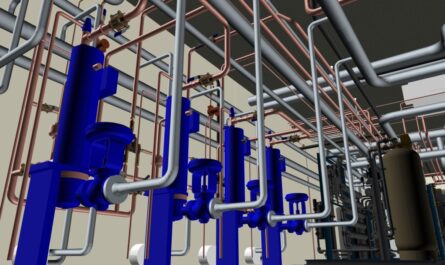Introduction to Manufacturing Execution Systems
Manufacturing Execution Systems or MES refer to computerized systems used within production and manufacturing industries to track, document and manage production processes as well as flow of materials, labor hours, machines and other resources needed on the plant floor. MES helps bridge the gap between business planning and control systems on the enterprise resource planning (ERP) level to actual physical execution of production schedules on the plant floor.
MES basics and functions
At its core, Manufacturing Execution Systems and Software provides real-time visibility into production operations by capturing data from equipment, machinery, sensors and other IoT-enabled devices on the plant floor. This data is then aggregated and often visualized through dashboards and reports. Some key functions of a basic MES system include:
– Production tracking and scheduling: MES enables tracking production against schedules, dispatching work orders to machines and facilitating material movement.
– Labor tracking: It captures data related to operator activity, downtime reasons, labor hours and productivity metrics.
– Equipment monitoring: MES monitors real-time status of machines, collects equipment historial data for maintenance and traceability purposes.
– Quality management: It manages quality inspection points, tracks defects and non-conforming materials in productions. Quality alerts can be programmed.
– Inventory and materials management: MES handles inventory adjustments, materials receipt, issues and transfers on the plant floor.
– Compliance and regulatory reporting: It helps fulfil traceability and audit requirements through serialized lot and batch tracking capabilities.
Advanced MES offerings
With growing emphasis on digitization, connectivity and analytics, MES providers now offer advanced capabilities beyond basic production monitoring and control. Some advanced features include:
– Predictive maintenance: By leveraging machine learning and analytics, MES predicts equipment failures and schedules repairs proactively to avoid downtime.
– Energy management: It monitors energy consumption patterns, detects inefficiencies and helps optimize usage across manufacturing processes.
– Paperless operations: Paperwork and forms on production floor are replaced with digital workflows for greater efficiency.
– Mobile capabilities: Field staff can access real-time plant data and issue commands using mobile apps for improved flexibility.
– Analytics and reporting: Advanced reporting and analytics tools offer insightful KPI-based dashboards and metrics on OEE, productivity and quality.
– Integration capabilities: MES integrates seamlessly with other plant systems like SCADA, historians, lab instruments through open interfaces.
Benefits of deploying MES
Organizations reap significant benefits by implementing manufacturing execution systems to digitally transform production operations. Some key advantages include:
– Increased productivity and overall equipment efficiency (OEE) through better visibility, control and optimization of assets, labor and processes.
– Improved quality by enabling real-time quality monitoring, tightening process controls and facilitating continuous improvement. Less defects and reworks lead to higher customer satisfaction.
– Reduced downtime and breakdowns with capabilities like predictive maintenance that minimize unplanned stoppages. Machines and lines are utilized more effectively.
– Lower inventory levels are achieved through tools like electronic work instruction and serial/lot traceability. Materials and WIP inventory carrying costs are reduced.
– Regulatory compliance can be demonstrated easier with features like electronic records, serialized tracking and advanced reporting on production data.
– Data-driven decision making is supported through powerful analytics, dashboard and reporting tools that deliver actionable insights from plant operations.
MES implementation challenges
While the promise of benefits are significant, setting up a manufacturing execution system also poses its share of challenges:
– High initial investment is needed not just for software licensing but also costs associated with system integration, customizations, data migration and specialized implementation services.
– Disruptions to plant operations are common during the transition phase from legacy paper-based or standalone systems to new integrated MES. Downtime has to be carefully minimized.
– Manual work instructions and processes need to be redesigned according to new digital workflows which requires a cultural shift from shop floor staff. Training and adoption take time.
– Data quality issues often arise since MES pulls critical production data from multiple sources in real-time. Data hygiene measures need to be institutionalized.
– Higher level of IT expertise is required inside manufacturing organizations to support, upgrade and evolve MES deployments compared to traditional standalone machines.
To overcome these challenges and fully leverage MES capabilities, it is important to adopt a phased implementation strategy with iterative pilots, factor TCO holistically and gain leadership sponsorship to drive organizational change. With due diligence, companies reap rich dividends from their MES investments.
*Note:
1. Source: Coherent Market Insights, Public sources, Desk research
2. We have leveraged AI tools to mine information and compile it




